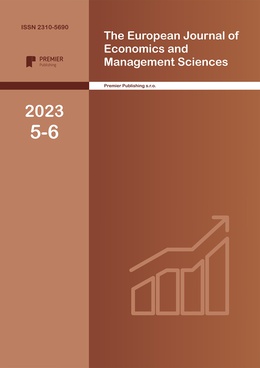Critical success factors in construction projects and measuring project success
Authors
Anar Malikov

Share
Annotation
The building sector, which emerged with humanity's need for shelter and became increasingly complex with the increasing demands and desires of societies over time in parallel with the development of technology, has led the relevant sector stakeholders to make some changes within the framework of the elements and dynamics it contains. The ever-accelerating population growth in the world has disrupted the supply-demand balances, especially because of regional concentrations after the industrial revolution. In this regard, construction companies, which are important stakeholders of the building industry, have had to take a position to complete projects with optimum quality, cost, and time with the aim of increasing profit margins. Measuring project success in the construction industry is essential for interpreting project results. The purpose of this study is to test the usability of a standard project success measurement method, which evaluates project success objectively and subjectively, in developing countries. As a result of the study, a general evaluation of success measurement in construction projects will be made, where a construction project success measurement method can be used will be discussed, and various suggestions regarding construction project success measurement in developing countries will be included.
Keywords
Authors
Anar Malikov

Share
References:
Al-Hallaq K. Mohamed, and Enshassi, S., Causes of Contractor's Business Failure in Developing Countries, Journal of Construction in Developing Countries, 2006, p. 237
Beck, R., Wysocki, R. and Crane D., Effective Project Management, John Wiley and Sons, 2003, pp. 79-85
Davies and Cooke, T., The Real Success Factors on Projects, International Journal of Project Management, 2002, pp. 185-190
Egbu C.O., Skills, knowledge, and competencies for managing construction refurbishment works. Construction Management and Economics, 1999, pp. 29-43
Halpin, D., Construction Management, 3rd edition, John Wiley and Sons, Inc., 2006, p. 169
Haynes, N.S., Love, P.D.E., and Irani, Z., Construction managers’ expectations and observations of graduates, Journal of Managerial Psychology, 2001, pp.579-593
Hendrikson, C., Project Management for Construction Fundamental Concept for Owners, Engineers, Architects and Builders, USA, 1988, p.321
Hikle V., and Eldin N., Pilot Study of Quality Function Deployment in Construction Projects, Journal of Construction Engineering and Management, 2003, pp. 314-329
Holt, G. D., Proverbs, D. G. and Cheok, H. Y., Construction Industry Problems: The Views of UK Construction Directors, Glasgow Caledonian University, 2000, pp. 73-78
Jaselskis, E.J., Achieving construction Project success through predictive discrete choice models, University of Texas, 1988, p. 451
Joyce, N.E. and Gould, F.E., Construction Project Management, New Jersey, 2000, p. 206
Kerzner, H., Project Management: A System Approach to Planning, Scheduling, and Controlling, John Wiley and Sons, Inc., New York, 2001, p.315
Klemetti,A., Risk Management in Construction Project, Helsinki University of Technology, 2006, pp. 46-57
Lilliesköld, and J.,Taxen, L., Images as action instruments in complex projects, International Journal of Project Management, 2008, pp. 527 -536
Lopes, J. and Ruddock, L., The Construction Sector and Economic Development: The Bon Curve, Construction Management and Economics, 2006, pp. 717–723
Perrier, N., and Pellerin, R., A Review of Methods, Techniques and Tools for Project Planning and Control, International Journal of Production Research, 2018, pp. 2160 -2178
Pinto, J.K., Project Implementation: A determination of its critical success factors, moderators, and their relative importance across the Project life cycle, University of Pittsburgh, Pittsburgh, 1986, pp. 126-134
Raz, T., Dvir, D., and Shendar, A.J., An Empirical Analysis of the Relationship Between Project Planning and Project Success, International Journal of Project Management, 2003, pp. 89-95
Salleh, R., Critical Success Factors of Project Management: Improving Project Performance, Queensland University of Technology, 2009, p. 283
Samuel, J. and Meredith, J.R., Project Management: A Managerial Approach, John Wiley and Sons, Inc., USA, 1995, p.67
Sears, G.A., and Clough, R.H., Construction Project Management, John Wiley and Sons, Inc., USA, 1991, p. 348
Tippett, D.D., Hughes, S.W. and Thomas, W.K., Measuring Project Success in the Construction Industry, Engineering Management Journal, 2004, pp. 31-37


